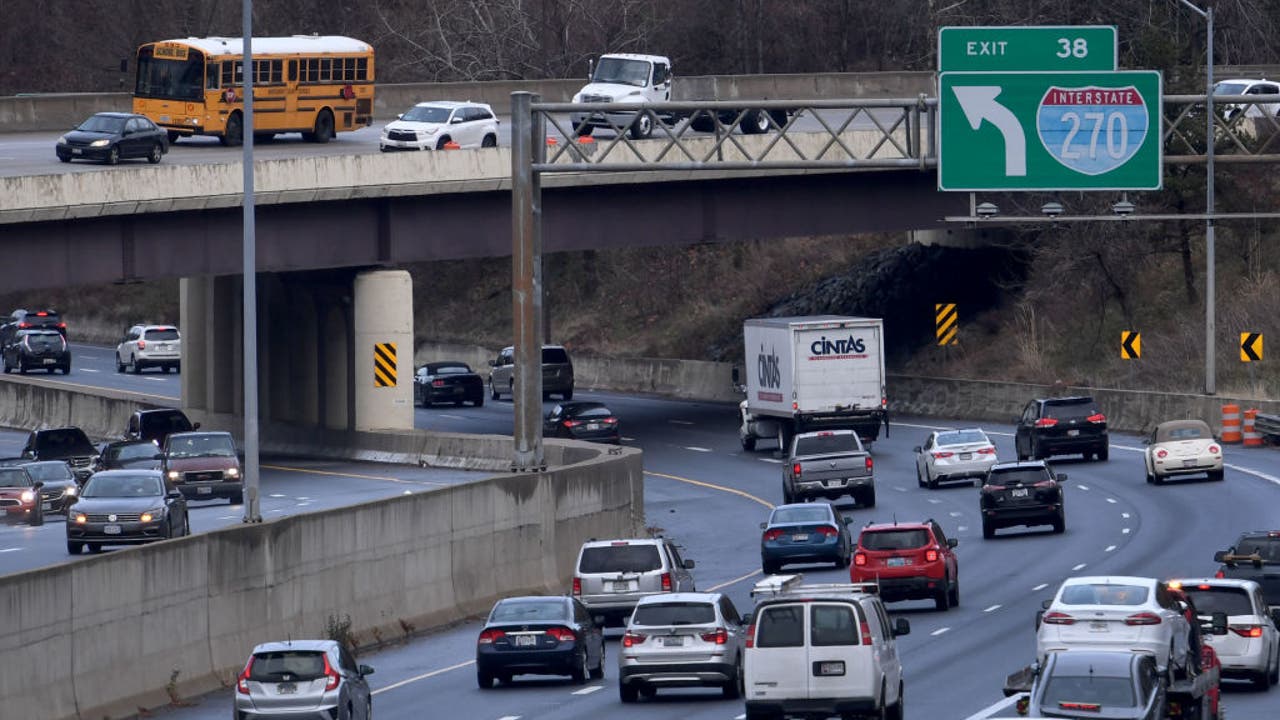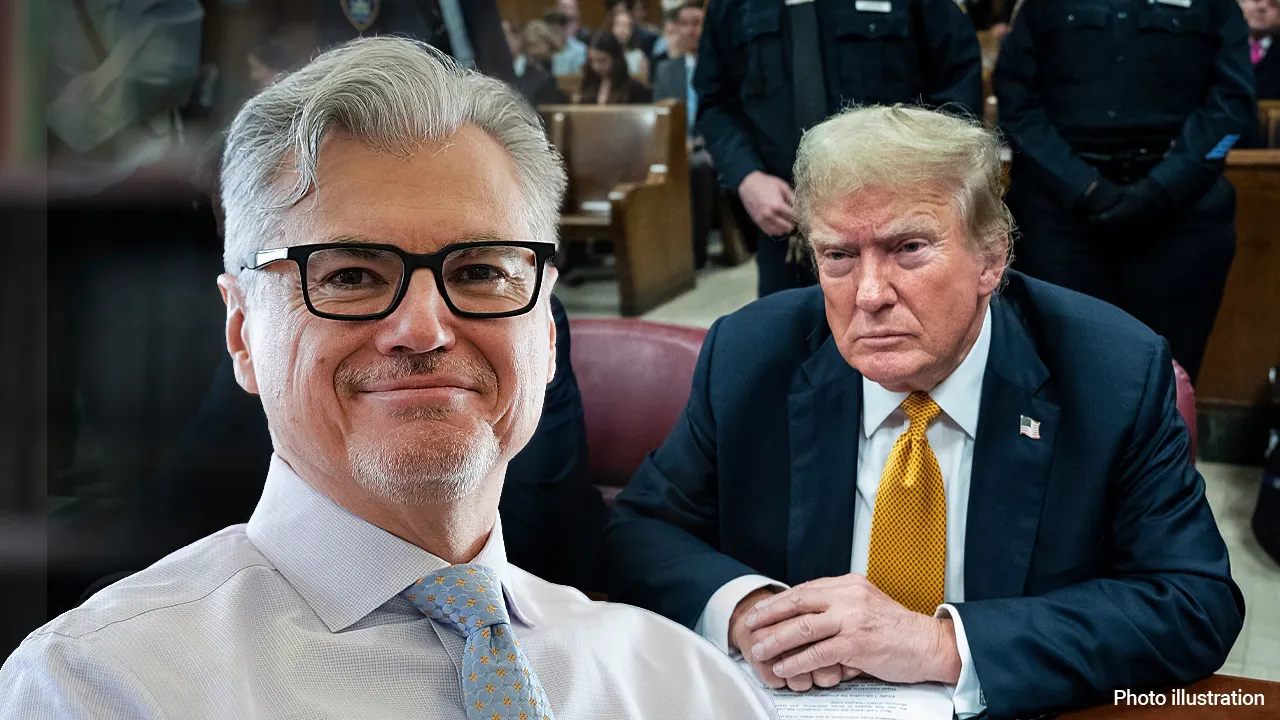World
A week in, the EU is still struggling with its Israel-Hamas messaging
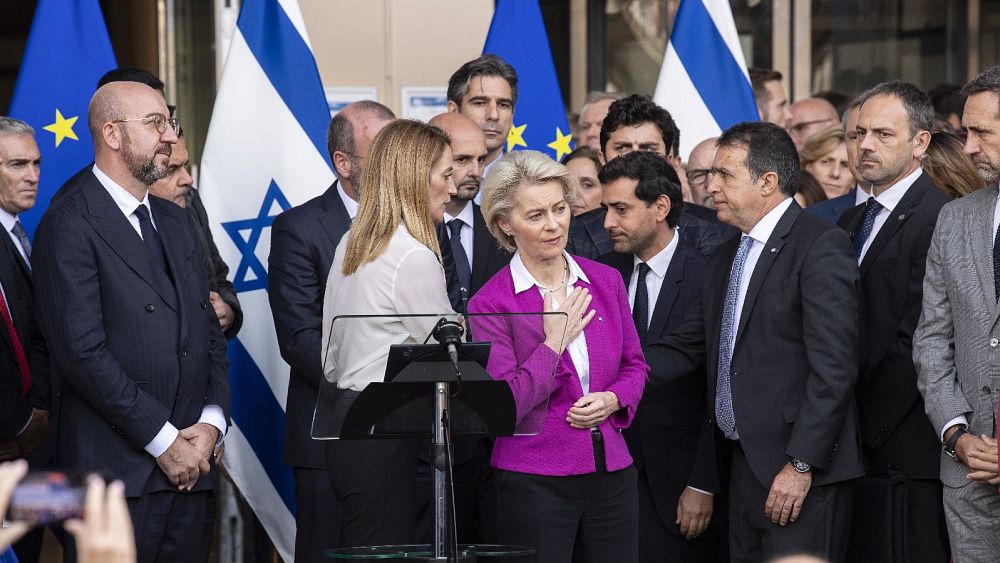
The European Union’s hitherto solid defence of international law is under question following Brussels’ reaction to how Israel is responding to the deadly attack by Palestinian militant group Hamas.
It’s been a particularly bad few days for the European Commission whose week started with a disastrous communication debacle over aid to Palestinians and ended with accusations of double standards over how it labels what is currently unfolding in the Middle East and the events of the past 600 days in Ukraine.
Comments by the institution’s chief, Ursula von der Leyen, over how Russian attacks on civilian infrastructure “especially electricity” constitute “war crimes” have proved particularly contentious.
“Cutting off men, women, children of water electricity and heating with winter coming is pure terror,” she wrote on X, formerly Twitter, in October last year. “And we have to call it a such”.
Asked this week why the EU’s executive was not similarly labeling Israel’s decision to cut off electricity in the Gaza Strip a war crime, Commission spokesperson Eric Mamer argued the context was different so the comparison was not applicable.
“You are discussing a comment made in one very, very specific context where there was an unprovoked attack by a country – furthermore a member of the UN Security Council – against a peaceful neighbour, and the situation we’re experiencing now, where I remind you there are continuing to be attacks from Gaza towards Israel.”
“And where therefore Israel is in a situation where it is defending itself in an extremely complex theatre of operations. Therefore we here cannot judge what are the exact actions that need to be taken in order for Israel to fight the Hamas terrorists which have attacked its territory.”
‘The right to self-defence’
The EU, which considers Hamas a terrorist outfit, was swift to condemn the attack by the organisation carried out last Saturday in which over 1,200 Israelis were murdered. Over 100, including babies, were also kidnapped with their fate as well as health and well-being still unknown as demands for their release have gone unanswered.
The bloc has also strongly supported Israel’s right to self-defense, adding that any retaliation had to be proportionate and in respect of international humanitarian law.
But actions by the Israeli military have escalated concerns for the two million people hemmed into a tiny exclave. Israel declared a “complete siege” saying electricity, food, fuel and water were being cut off.
“The emphasis is on damage, and not on accuracy,” said Israeli government spokesperson, Daniel Hagari on Tuesday.
Then on Friday, Israel gave 24 hours for inhabitants of Gaza to leave the north of the exclave before a wave of ferocious bombing is unleashed.
Humanitarian organisations have been raising the alarm, including the Secretary General of the United Nations, António Guterres, who described himself as “deeply distressed” by Israel’s siege.
The situation in Gaza, he added, is “extremely dire” as a result of the Israeli blockade of Gaza before Hamas’s attack, saying it will “only deteriorate exponentially.”
UNICEF deplored the deaths of “hundreds and hundreds” of children and said “hospitals are utterly overwhelmed to treat “those with injuries” including “horrendous burns, mortar wounds, and lost limbs.”
“The humanitarian situation has reached lethal lows, and yet all reports point to further attacks. Compassion – and international law – must prevail,” a spokesperson added.
Norway also condemned the “unacceptable” siege of Gaza by the Israeli army, and announced additional humanitarian aid to the city’s residents.
By Friday, the number of Palestinians killed by Israel had surpassed 1,700. Thousands more are injured.
‘Civilians must be protected’
Accusations that the EU is not equating the lives of innocent Palestinian civilians with those of innocent Israeli citizens, regardless of the fact that all civilians – especially children, have special status under international humanitarian law – grew louder
In response, Mamer of the Commission said “protection of civilians is of utmost importance” and that Palestinian civilians “must be pre-warned and alerted” of incoming air strikes, thus allowing them to leave the area. He noted that Israel had done that.
He also said the bloc is “encouraging the creation of humanitarian corridors to allow deliveries of much needed humanitarian aid, including allowing access to food, water and medicines in accordance with international humanitarian war” and that von der Leyen had spoken to a number of regional leaders.
But a source close to the delegation who spoke to Euronews on condition of anonymity said the Commission President was “less interested” about talking to her Israeli partners about trying to limit civilian casualties while on a trip to Israel.
In footage shared of her trip, she can be heard saying that she is “very grateful that you said very clearly that Hamas are terrorists but that we have to care for the Palestinian people and humanitarian needs”.
But she made no mention of civilians or of the responsibility of the Israeli government to spare their lives as much as possible in a statement delivered alongside Israeli Prime Minister Benjamin Netanyahu.
“Hamas’ acts have nothing to do with the legitimate aspiration of the Palestinian people,” she said. “On the contrary, the horror that Hamas has unleashed is only bringing more suffering upon innocent Palestinians. They are threatened, too. Hamas’ despicable actions are the hallmark of terrorists. And I know that how Israel responds will show that it is a democracy.”
Her Commissioner for Crisis Management, Janez Lenarčič, was however more explicit, writing on X shortly after her intervention from Israel that “civilians must be protected”, and that “critical infrastructure must not be targeted”.
It was the second time in a matter of days that the Slovenian official stepped in to unequivocally champion EU humanitarian support to Palestinians.
Earlier in the week, he was the first in the EU’s executive to provide some clarification after Olivér Várhelyi, the Commissioner in charge of enlargement and neighbourhood, unilaterally announced the EU was suspending aid to Palestinians, triggering confusion as to whether this included humanitarian assistance too and creating a diplomatic row among member states.
The Commission instead took more than five hours to release a statement in which it announced an “urgent review” of the hundreds of millions of euros in development aid it provides to Palestinians. It justified the move by the need to be particularly vigilant that none of that money could fall into the hands of Hamas.

World
France elections: Germans prepare for seismic change in EU politics
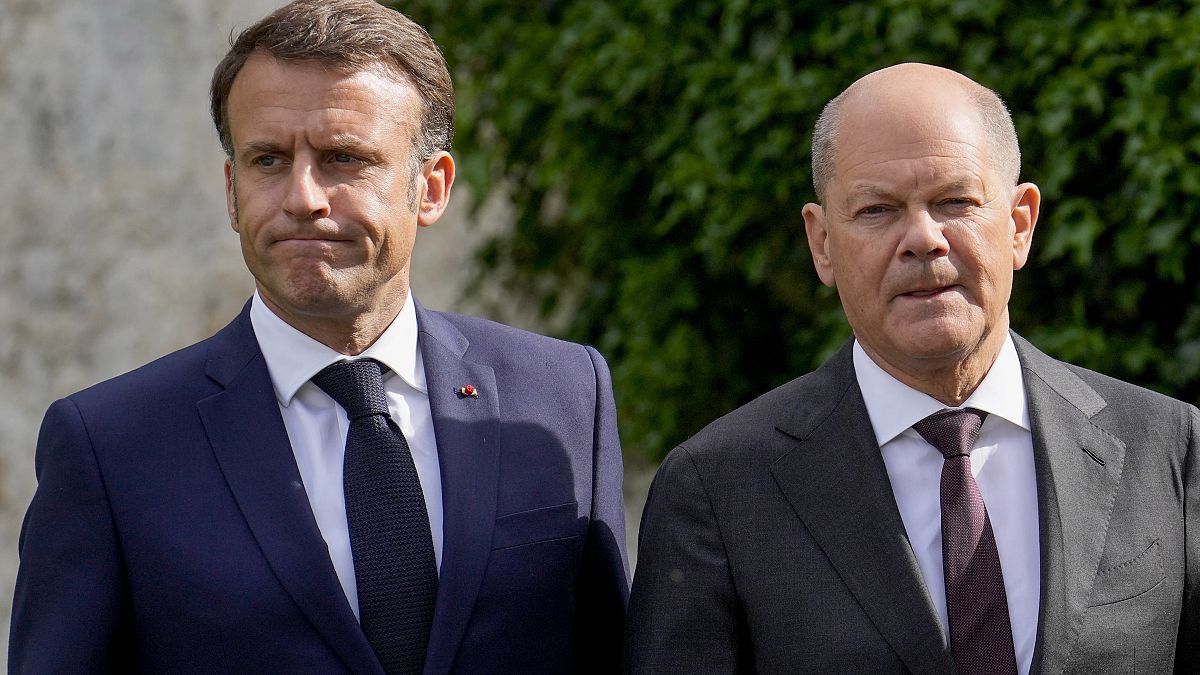
As France gears up for the shocking snap elections that French President Emmanuel Macron called during the EU elections, Germans are preparing for a seismic change in EU politics.
With the upcoming French elections just around the corner, Germany is bracing itself for the results, which are expected to swing to the right.
Climate, migration and gender equality policies are likely to be affected on a national level in France if far-right Marine Le Pen’s National Rally party wins. Yet, political scientist Prof Dr Miriam Hartlapp warned the effects could ripple across the European Union.
“Policymaking in Brussels will change because members of this right-wing populist party could sit in the Council of Ministers. This creates a different situation for countries like Germany and other European nations,” Hartlapp said.
“France is not a small member state, but a large and important one. We can expect that European climate policy, asylum and migration policy, and gender equality policy at the European level will then look different,” she added.
Hartlapp said the swing to the right has spread across Europe as the dissatisfaction with current governments is reflected in the political climate.
Germans are aware of the changes and this “causes concern,” Harlapp said, pointing at German Chancellor Olaf Scholz’s recent interview where he said he hopes “that parties that are not [Marine] Le Pen, to put it that way, are successful in the election. But that is for the French people to decide.”
Hartlapp added that the EU can expect immigration-related cases to be brought to the European Court of Justice.
“Some points in the National Rally‘s program clearly contradict the fundamental rights of the European constitution. For example, immigrants in France not having the same rights as French citizens when it comes to housing and social benefits. This directly contradicts EU law,” she said.
Meanwhile, in Germany, individual politicians from the far-right party Alternative for Germany (AfD) and extreme-right Die Heimat announced their plans to form factions in the eastern state of Brandenburg this week, after AfD outperformed all of the parties in the ruling coalition government during the EU elections.
World
Live Updates: Kenyan President Vows to Prevent Violence ‘At Whatever Cost’
President Ruto spoke after demonstrators in Nairobi breached the Parliament to protest the passage of a bill raising taxes on many basics. At least five people were killed, according to Amnesty International and several civic organizations.
World
Ukraine's Zelenskyy replaces military's commander of joint forces
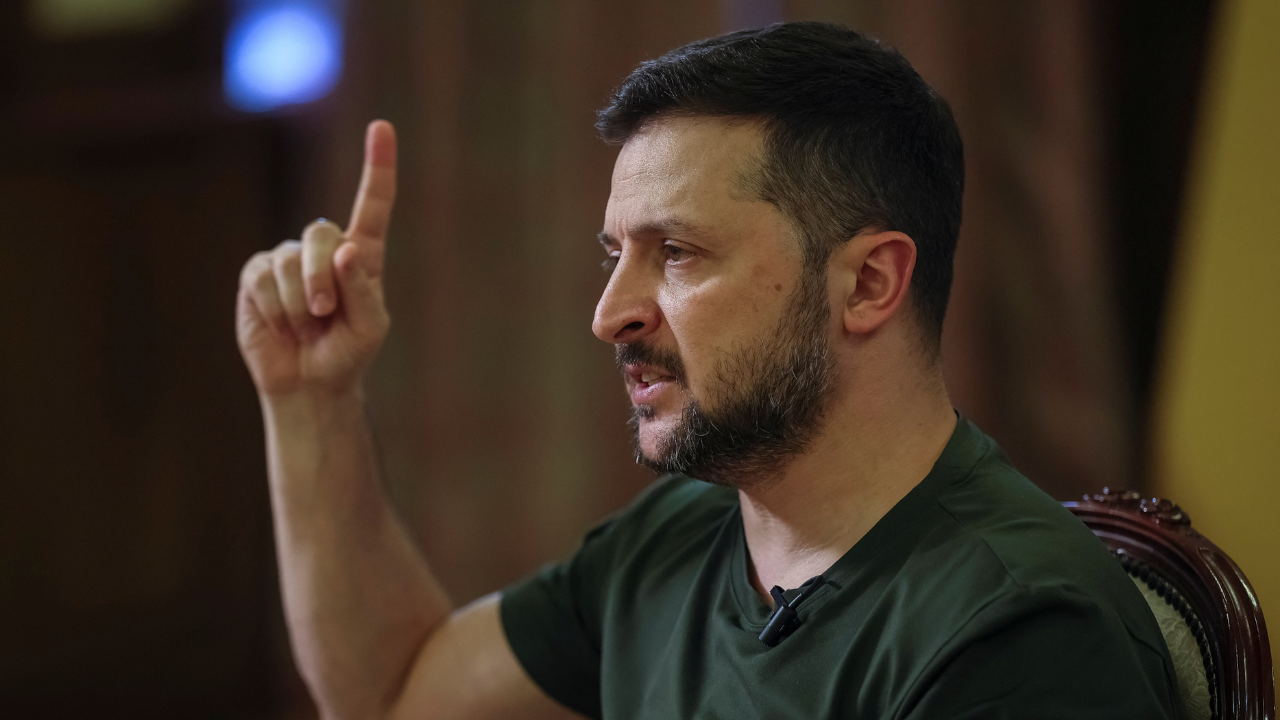
- President Volodymyr Zelenskyy has announced the replacement of Lieutenant-General Yuri Sodol as the commander of the Joint Forces of Ukraine’s Armed Forces.
- Zelenskyy named Brigadier-General Andriy Hnatov as Sodol’s successor, who will handle strategic planning of operations.
- Sodol’s removal followed a letter by Bohdan Krotevych, head of Ukraine’s Azov regiment, accusing Sodol of actions leading to military setbacks.
President Volodymyr Zelenskyy said on Monday he had replaced the commander of the Joint Forces of Ukraine’s Armed Forces, Lieutenant-General Yuri Sodol, after reports surfaced that he had performed badly in the 28-month-old war against Russia.
Zelenskyy, speaking in his nightly video address, gave no reason for the dismissal. He said Sodol had been replaced by Brigadier-General Andriy Hnatov in the post, which involves strategic planning of operations.
Sodol’s removal, one of a series of personnel changes, followed publication of a letter by the head of Ukraine’s revered Azov regiment, Bohdan Krotevych, in which he alleged that Sodol’s actions had led to serious military setbacks.
RUSSIA BLAMES US AFTER UKRAINIAN ATTACK ON CRIMEA LEAVES SEVERAL DEAD, WOUNDED
In a post on the Telegram messaging app, Krotevych did not identify Sodol by name, but said an unnamed general “has killed more Ukrainian soldiers than any Russian general.”
Ukraine’s President Volodymyr Zelenskyy speaks during an interview in Kyiv, Ukraine, on May 20, 2024. Zelenskyy said on Monday he had replaced the commander of the Joint Forces of Ukraine’s Armed Forces, Lieutenant-General Yuri Sodol, after reports surfaced that he had performed badly in the 28-month-old war against Russia. (REUTERS/Gleb Garanich)
“What I do care about is that combat battalion and brigade commanders are put on trial for losing an observation post, but a general is not put on trial for losing regions, dozens of cities and thousands of soldiers,” Krotevych wrote.
“All the military personnel now understand who I am talking about because 99 percent of the military hate him for what he does.”
The news outlet Ukrainska Pravda, citing a leaked report, said a criminal complaint had been submitted concerning Sodol, who was promoted earlier this year, although it did not identify him. It said Krotevych was willing to testify against him.
Hnatov had served as deputy commander of the southern theater of operations since 2022 and played a leading role in recapturing much of southern Kherson region from Russian invaders.
In the spring of 2023, he commanded the defense of Bakhmut in eastern Ukraine, a town that eventually fell to Russian forces after many months of pitched battles.
Krotevych, in a social media post after the president’s announcement, described Hnatov as a “very worthy officer”.
With Russian forces making gains and slowly advancing through eastern Ukraine in recent months, the military has undergone considerable changes.
The military top commander, Valeriy Zaluzhnyi, was dismissed in February after public differences with Zelenskyy over the conduct of the war.
-

 News1 week ago
News1 week agoJoe Biden, Barack Obama And Jimmy Kimmel Warn Of Another Donald Trump Term; Star-Filled L.A. Fundraiser Expected To Raise At Least $30 Million — Update
-

 News1 week ago
News1 week agoIt's easy to believe young voters could back Trump at young conservative conference
-

 World1 week ago
World1 week agoRussia-Ukraine war: List of key events, day 842
-

 World1 week ago
World1 week agoProtesters in Brussels march against right-wing ideology
-

 World1 week ago
World1 week agoSwiss summit demands 'territorial integrity' of Ukraine
-

 News1 week ago
News1 week agoA fast-moving wildfire spreads north of Los Angeles, forcing evacuations
-

 World1 week ago
World1 week agoAl-Qaeda affiliate claims responsibility for June attack in Burkina Faso
-
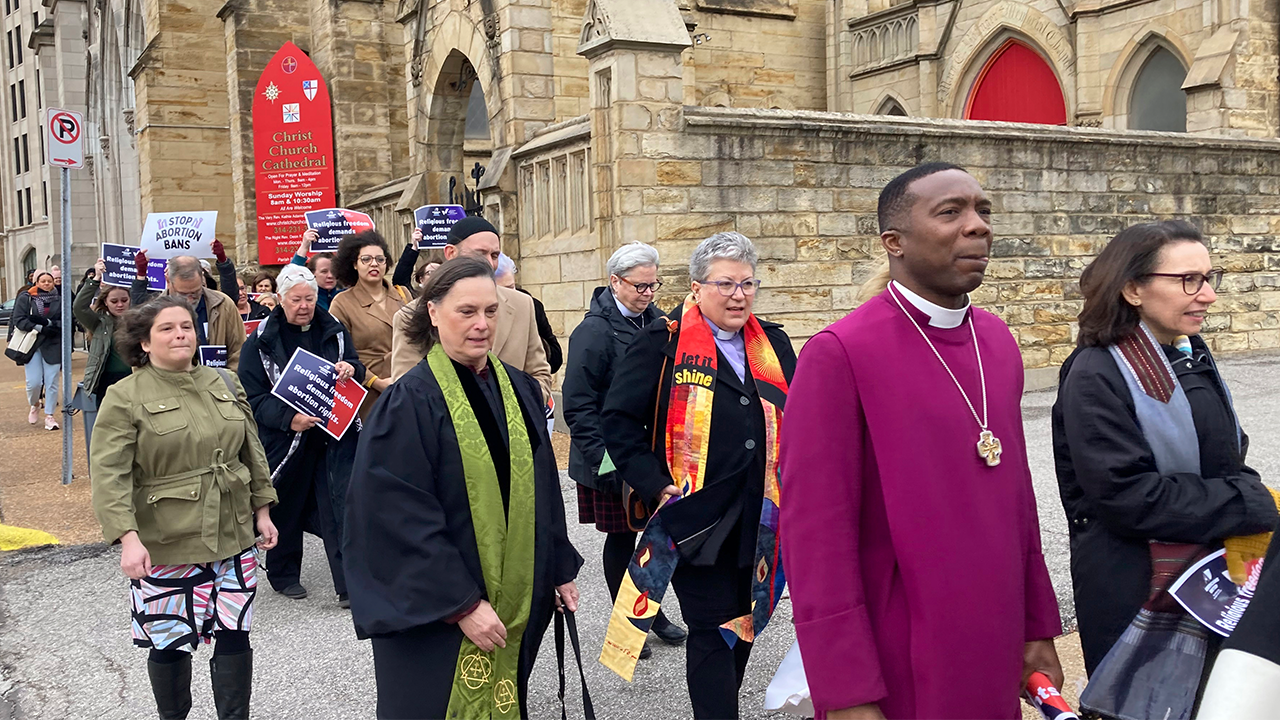
 Politics1 week ago
Politics1 week agoJudge rules Missouri abortion ban did not aim to impose lawmakers' religious views on others





